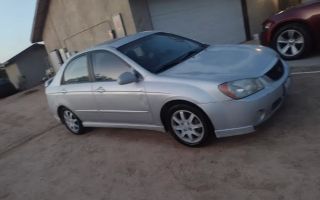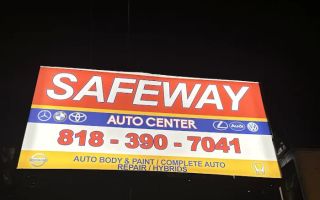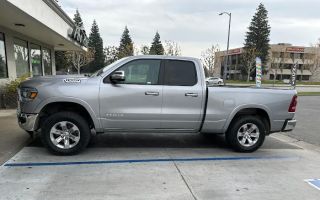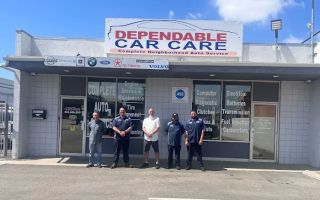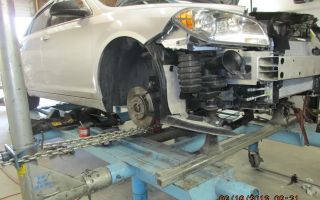- 1. Understanding the Towing Process
- 2. Check Your Vehicle’s Condition
- 3. Disable Car Alarms
- 4. Remove Personal Items from Your Car
- 5. Ensure Your Vehicle Is Properly Secured
- 6. Choosing the Right Towing Service
- 7. Important Tips for Towing Your Car
1. Understanding the Towing Process
When you find yourself needing to tow your car, understanding the entire process is the first step. Towing isn't just about attaching a car to a vehicle; it involves carefully lifting, securing, and transporting it without causing damage. Preparing your car for towing is crucial for a smooth and stress-free experience.
Before the tow begins, assess the type of towing you need. Are you using a flatbed tow truck, a hook and chain, or a wheel lift system? Different methods require different preparations. This article will guide you through the process, ensuring your car is ready for transport in the safest way possible.
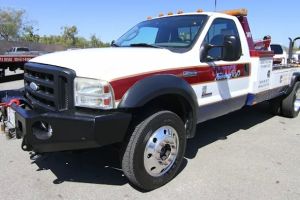
United Towing Service Inc.
26170 Adams Ave, Murrieta, CA 92562, USA
2. Check Your Vehicle’s Condition
One of the first steps in preparing your car for towing is ensuring its condition is suitable for towing. A damaged or poorly maintained vehicle may require special handling. Check for flat tires, leaks, and any visible damage that could complicate the towing process. If the car is immobile, make sure the tow truck operator is aware of any mechanical issues or obstacles they may face.
If your car has been in an accident or has mechanical problems, it’s important to inform the towing service in advance, as they may need specific equipment to safely move your car. For example, if your brakes are not functioning properly, the tow truck may need to use additional tools to secure your vehicle properly.

Pick Your Part - Help Yourself
1232 Blinn Ave, Wilmington, CA 90744, USA
3. Disable Car Alarms
When towing a car, especially for long distances, it is essential to disable any alarms that may be triggered during the towing process. Some cars have sensitive alarms that might go off once the car is moved. This can be disruptive and may cause unnecessary panic. Disabling your car’s alarm before the tow helps to avoid these situations. It’s also advisable to remove the key fob and keep it with you, as some alarm systems can be activated remotely.
4. Remove Personal Items from Your Car
Personal items inside your car can be damaged or lost during the towing process. To avoid any inconvenience, it’s best to remove all valuable items, documents, and electronics before your car is towed. Even if your car is going to a nearby location, removing personal belongings is a good habit to form, as towing might sometimes take longer than expected.
Additionally, removing any heavy items from your car can help reduce strain on the towing vehicle, especially when dealing with a large or heavily loaded vehicle. If you are unable to remove certain items, make sure to inform the towing company about them beforehand.
5. Ensure Your Vehicle Is Properly Secured
Properly securing your car is essential for a safe tow. If the vehicle is not secured correctly, it could shift during transport, causing damage to both the car and other vehicles on the road. Make sure the tow truck driver uses the correct straps or chains to secure the car, especially around its suspension points, which are designed to handle the towing load.
It is also a good idea to check that the car’s transmission is in neutral (or in the appropriate setting if it’s an automatic), and the parking brake is disengaged to prevent further damage during the tow.
6. Choosing the Right Towing Service
Not all towing services are created equal. When choosing a towing company, it is important to select one that has experience with your vehicle type and towing method. Look for a company with certified professionals who are knowledgeable about the best practices for towing and securing cars. Customer reviews and word-of-mouth recommendations can also be valuable resources in finding a reliable towing service.
If you’re uncertain about which towing service to use, check the website or call the service provider. At Rescue & Towing, we provide a range of towing options, including flatbed towing and heavy-duty towing, ensuring the safest transport for your vehicle.
7. Important Tips for Towing Your Car
There are a few more tips to keep in mind to make the towing process as smooth as possible:
- Always confirm your car’s readiness: Before the tow, make sure you have done everything to prepare your car, including checking fluid levels, tire pressure, and ensuring the car is in neutral.
- Keep contact details handy: Always have the contact information for the towing company, and provide them with any special instructions they may need to know.
- Know the estimated time frame: Get an estimated time of arrival from the towing company. This will give you peace of mind while you wait.
By following these steps, you can ensure that the towing process goes smoothly and that your car is transported safely without damage.
For the best towing services, make sure to visit Rescue & Towing for top-quality assistance. Whether you need a quick tow or have special requirements, our team is here to help with your vehicle’s transportation needs.


